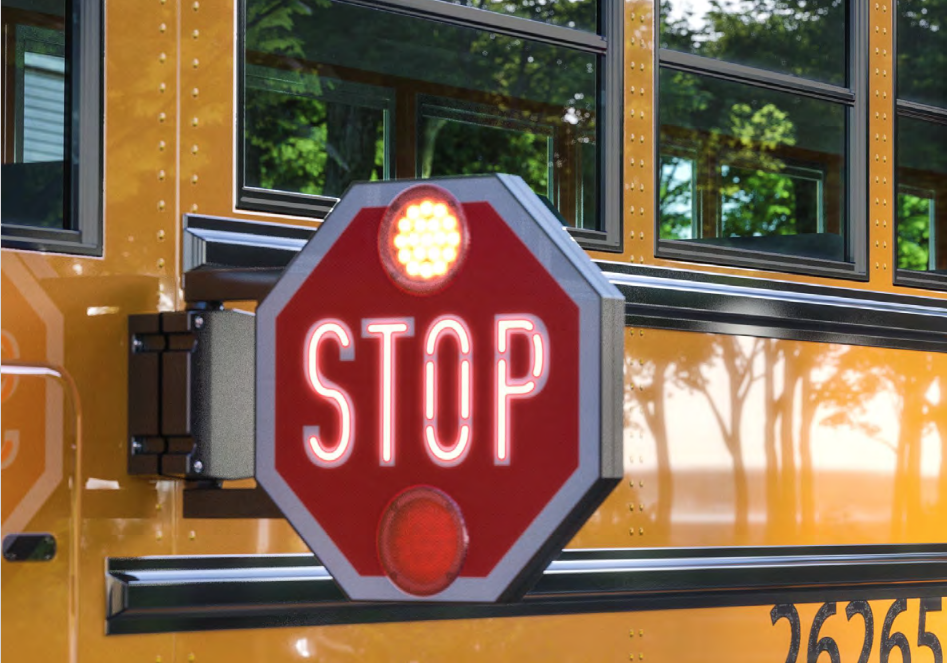By Greg Wehner, Staff Writer
(May 26, 2022) A plan to outfit school buses with monitors to catch and penalize drivers who break the law by passing the big yellow vehicles when they are stopped with their lights flashing has a way to go before it satisfies the Worcester County Commissioners.
On May 17, the commissioners were introduced to potential legislation being sought by the Worcester County Sheriff’s Office and the Worcester County Board of Education that would allow school buses to be outfitted with monitoring systems designed to reduce the illegal passing of school buses. The systems are also intended to increase the safety of students.
Once equipped, the monitors will activate as soon as the stop sign arm of the bus comes out.
Commissioner Ted Elder, a former bus driver himself, said putting monitors like this on school buses is something he and his colleagues have wanted for years.
His concern, though, was BusPatrol, the company providing the systems, would connect to the law enforcement side of the equation, not the transportation providers side.
When a violation is captured by the bus monitoring system, it is sent to the sheriff’s office to review. Once the sheriff’s office verifies a violation took place, BusPatrol would issue the citation, acting on behalf of the sheriff’s office.
Elder said as desperately as he wanted a monitoring system on his bus, getting a private company involved in law enforcement “goes against the grain.”
State law governs programs like red light cameras and bus monitoring systems, according to County Attorney Roscoe Leslie, but the counties must approve their implementation.
Several counties across the state use bus monitoring systems, including Montgomery and Somerset.
The proposal presented to the commissioners would cost the county nothing.
Anyone cited for a violation would be charged $250. Each bus outfitted with a camera would be assessed a $150 monthly technology fee, according to the proposal, and the remaining amount of money collected would be split 60/40, with 60 percent going to BusPatrol and the other 40 percent going to the county. Of that 40 percent, 20 percent would go to the Worcester County Public Schools and 20 percent would go to the county general fund.
None of the money would go to bus contractors, which Elder said out of frustration was “typical.”
If the school district has 100 buses, hypothetically, and each bus captures one violation in a month, the amount in fines collected would be $25,000. Of that money, $15,000 would go toward the technology fee for 100 buses, $6,000 would go to the company, and $4,000 would go to the county.
But the buses only capture a combined 20 violations, the amount in fines collected would be $5,000. At that point, the technology fees would still be $15,000, or $10,000 short.
While the company states it would be no cost to the county, the $10,000 shortage would continue to grow until the buses capture enough violations to pay it off.
Commissioner Joe Mitrecic said the proposal needed to be worked on a little more.
“There’s no way this can work for the company,” he said
If every bus, every month fails to make the $150, it will roll to the next month and continue to grow.
Elder said if one bus gets one violation, though, it is paid for. He added that there will be dozens per bus per month, and despite the citations being issued by a private company, he would still support the measure.
Still, Mitrecic said he once got a red ticket in Gaithersburg, Maryland even though he was in Snow Hill attending a county commissioner’s meeting at the time. He added that he has serious concerns about the technology, but the issue will be brought back for further review.
No action was taken on the proposal.
